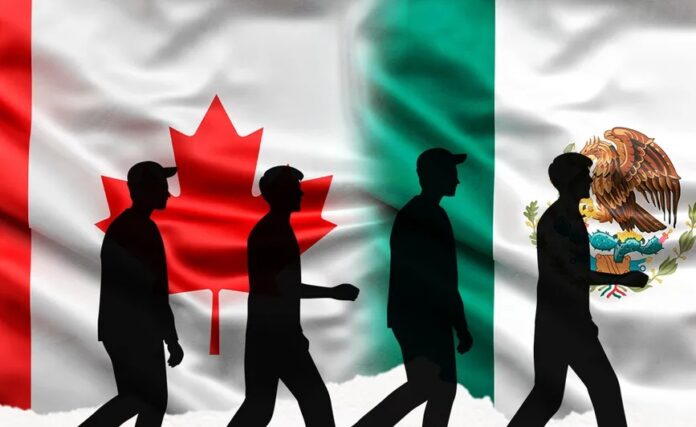The Mexican tourism industry has long been a favorite among Canadians, but with great popularity comes great responsibility. In an effort to protect its citizens from potential harm, the Canadian government has issued several warnings and advisories for travelers visiting Mexico.
While some areas of the country have been deemed too hazardous for non-essential travel, others pose a risk of “overcharging” – a phenomenon where tourists are taken advantage of in cabs, restaurants, and bars. According to the Government of Canada website, exchanges over overcharging disputes can sometimes turn violent, with tourists being threatened or forced to pay exorbitant bills.
To prevent such situations from arising, the government has issued advice on how to avoid potential overcharges:
1. Always confirm the price of an item before ordering.
2. Do not leave an open tab.
3. Avoid giving your credit card to bar or restaurant staff.
4. Check your bill for accuracy before paying.
These precautions are crucial in preventing tourists from falling victim to overcharging scams. However, they should also be aware of other potential dangers, including:
– Petty crime: Pickpocketing and purse snatching
– Forms of assault: Robberies, physical assault, and sexual assault
– Carjackings: Common on the Pacific coast and northern borders
The Canadian government has also issued advisories for specific regions, including Culiacán and Mazatlán in Sinaloa state. Recent clashes have taken place in these areas, with groups reportedly stopping vehicles on highways. Travelers are advised to exercise extreme caution and follow local authorities’ instructions.
Furthermore, the Quintana Roo government is working to address issues related to taxi fees from airports. In an effort to combat overcharging, Governor Mara Lezama has introduced a new $8 transportation alternative, which includes bus services connecting the Cancun International Airport to the city’s hotel zone.
To ensure a safe and enjoyable trip to Mexico, tourists are reminded to always ask for prices in advance and choose reputable sources within airports. With caution and awareness, travelers can minimize their risk of falling victim to overcharging scams and enjoy all that this beautiful country has to offer.
Regional Advisories:
– Chiapas (excluding Palenque via highway 186 from Villahermosa, San Cristobal de las Casas, and Tuxtla Gutiérrez)
– Chihuahua (excluding Chihuahua City)
– Colima (excluding Manzanillo city if accessed by air)
– Guanajuato (in all areas south of and including highways 43D and 45D)
– Guerrero (excluding Ixtapa/Zihuatanejo cities if accessed by air)
– Jalisco (within 50 km of the border with Michoacán state)
– Morelos (Lagunas de Zempoala National Park)
– Michoacán (excluding Morelia and Patzcuaro cities)
– Nayarit (within 20 km of the border with Sinaloa and Durango states)
– Nuevo León (excluding Monterrey city)
– Sinaloa (excluding Los Mochis city)
– Sonora (excluding Hermosillo, Guaymas/San Carlos, and Puerto Peñasco cities)
– Tamaulipas (excluding Tampico city)
– Zacatecas (excluding Zacatecas City)
Exercise a High Degree of Caution:
Mexico is currently under an “Exercise a high degree” of caution warning due to high levels of criminal activity and kidnapping. Travelers are advised to exercise extreme caution, limit their movements, monitor local media for the latest information, and follow instructions from local authorities.
By being aware of these potential dangers and taking necessary precautions, tourists can have a safe and enjoyable trip to Mexico.
Source: The Travel




